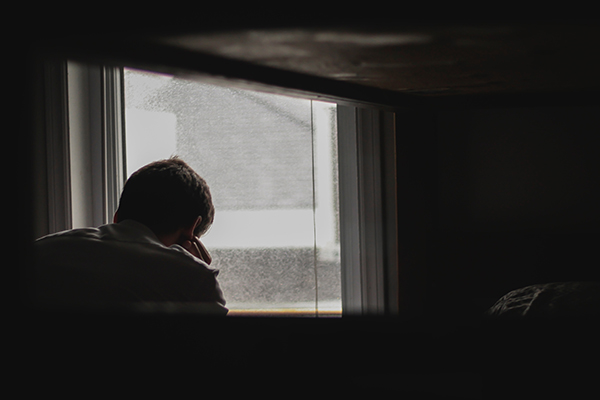By Grace Thornton
The Alabama Baptist
Happiness.
That’s what Steve Marshall said he sensed in his wife, Bridgette, the night the family gathered for her birthday last year — more happiness than he had seen in her in a long time.
For the months and years prior she had struggled with mental illness. She had left Alabama to get away — not from her family but from the people she felt were following her and watching her every move.
“Because of the way she perceived her life, that was her only option,” Marshall, Alabama’s attorney general, said in a June 2018 press conference. “Though we begged her not to go, we had no choice but to let her.”
Marshall didn’t know where his wife’s apartment was in Tennessee, but the two talked daily.
Making a difference
“Every day she reminded me of what I had the opportunity to do in this job and how I had the opportunity to make a difference,” he said.
They always ended their calls with “I love you.” And she had come back to celebrate her birthday with her family.
“We saw progress,” Marshall said, noting that she started making steps to get out of her lease and come back home. “And then for whatever reason something changed and we don’t know what.”
Not too long after her birthday she called him and said she was too tired to go on.
“As a guy who professionally is supposed to be able to convince somebody with words to do something, I couldn’t reach her,” Marshall said.
She ended her life and it changed their lives forever, he said.
That’s the story of the Marshall family — Steve, Bridgette and their daughter, Faith — a story they wish they hadn’t had to share or live.
But Marshall said in the days that followed his wife’s death, his church — LifePoint Church, Albertville — was a place where God met him with comfort. And he received texts and emails from people all over saying they understood, that their family had walked through similar tragedies.
“Following her death I had a discussion about ways we could engage the community about mental health issues and the topic of suicide,” Marshall said.
That discussion led to organizations in Albertville and surrounding areas coming together to put on the Not Alone Conference, a two-day conference aimed at equipping the church and community to reach out to those who are hurting.
“In a positive way Bridgette’s death became the genesis for an enlightening and rewarding conference,” Marshall said.
Kay Warren — who along with her husband, Rick Warren, cofounded Saddleback Church in Lake Forest, California — has walked a similar road of heartache and carries a burden for the church to engage the topic of mental illness. The Warrens’ son, Matthew, committed suicide in 2013.
“In the last five years hundreds of people have asked me how to help their loved one — particularly an adolescent or young adult child — who is living with severe mental illness and/or substance use disorder,” she wrote on her blog at kaywarren.com. “They have a similar look in their eyes, a similar expression on their faces, a similar weariness that seems to come from their bones.”
‘Astonishing’ response
She’s found that people see her as a safe place to ask those questions now. And she wrote that the first time her husband prayed publicly at church for those living with a mental illness, there was an “astonishing” response. He had prayed simply for God to bring them strength and comfort and for the church to support them in their suffering.
“That simple, grace-filled prayer instantly changed the atmosphere at Saddleback,” Warren wrote. “Those few short words, lovingly expressed, made it infinitely safer to talk openly about depression, anxiety, bipolar disorder, eating disorders, schizophrenia and suicidal thoughts. Chains of hopelessness were broken and walls of stigma, misunderstanding, confusion and prejudice began to melt away in the face of recognition, acceptance and love.”
People began to ask the questions at church that they hadn’t before — questions like: Can a Christian experience mental illness? Does it mean I don’t have enough faith? What happens to Christians who take their life?
“Many (congregations) are beginning to understand that mental illness is real and it is common — 1 in 5 Americans will experience a mental illness in the coming year,” Warren wrote.
To help churches know how to support members who may be suffering from a mental illness, Marshall, Warren and others will share their stories Feb. 22–23 at the Not Alone Conference, which will be held simultaneously at two locations — Albertville Fine Arts Center and Willowbrook Baptist Church, Huntsville.
Not Alone Conference
According to its website, the conference aims to break down the stigma of mental health within the church and community, to equip the church and community to better identify and minister to those who may feel alone and to connect people to resources within their community.
Breakouts will also address topics like supporting special-needs families, helping people with post-traumatic stress disorder, assisting people suffering from chronic pain and reaching out to people facing unexpected pregnancy or a past abortion.
For information visit notaloneconference.com.






Share with others: